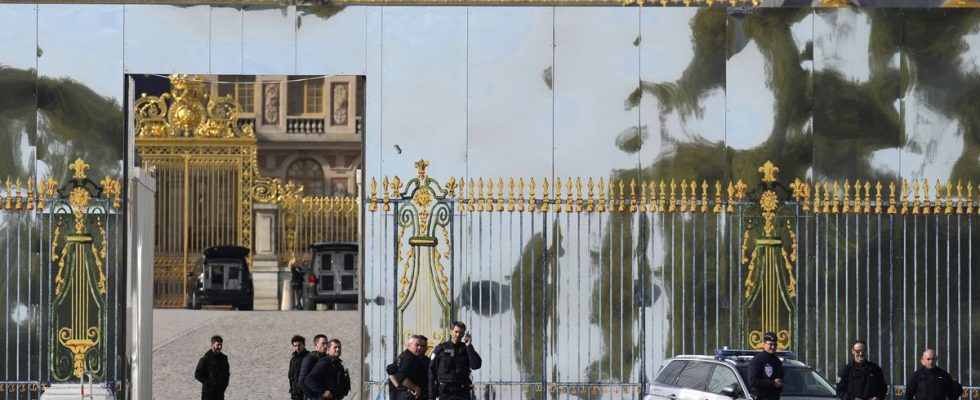“The throne of Louis XIV is going to jump. See you. Evacuate.” The – false – bomb threat at the Palace of Versailles last Thursday cost its author an eight-month suspended prison sentence. decision was just handed down this Monday by the courts, but will this be enough to stop the outbreak of bomb threats which have shaken France for more than a week?
While numerous evacuations had already taken place since the start of the school year, Friday October 13, the day of the assassination of Dominique Bernard, French teacher, in a high school in Arras, marked a turning point. France then goes on “Emergency attack” alert. The following week, 70 bomb threats affected French airports, producing 45 evacuations. The Palace of Versailles was evacuated again on Sunday for the seventh time in eight days. A fate that the Louvre Museum had suffered the previous weekend.
Between 100 and 150,000 euros lost in one day of evacuation in Versailles
For the moment, fortunately, these are only hoaxes. But the bill is starting to climb. The lawyer for the Palace of Versailles spoke this Monday of damage of “an order of magnitude of 100,000 to 150,000 euros” for Thursday alone. Figures which correspond to the information given by the press service of the Palace of Versailles. He expects attendance, at this time of year, of 10,000 to 15,000 visitors in normal times, for daily ticket revenue of 170,000 euros.
However, the domain assures us: such a calculation is not relevant, because the alert does not last all day, is triggered most of the time in the afternoon and only lasts a few hours. Most evacuated tourists therefore return the same day, according to the Château, which reminds that visits not made are reimbursed. Nevertheless, the mayor of Versailles, François de Mazières (LR), recognized on Franceinfo that visitors “are now hesitant to come” and that “consequences on attendance” could be felt if the alerts continued.
What winter season for French tourism?
Didier Arino, director of the Protourisme consulting firm, is more reassuring: “We are talking about the Louvre and Versailles, they are two giants with strong backs. They have overcome Covid-19, it is not a few bomb threats that will sink them. » Sandra Hoiban, director of the Research Center for the Study and Observation of Living Conditions (Credoc) and tourism specialist, is worried about the tourism sector in general: “Bomb threats, even hoaxes , this is not trivial. Especially with France, where the memory of Islamist attacks is recent. »
Be wary therefore that the winter wind is not seized with a wind of panic. “We will have to be careful not to have a real loss of tourism during the coming winter season. Season during which closed places – therefore the most exposed for bomb threats – are normally the most popular,” continues the specialist. Same fear for Didier Arino: “We must be careful about the media coverage of these alerts abroad. At the moment, international news is far too busy with Gaza, Israel and Ukraine. But we saw, with the French riots, how an international focus could harm tourism. The problem is not the real threat, but the media treatment around it. »
A very strong impact for the airline sector
For the airline sector, however, the financial impact is of a completely different type. “This amounts to millions of euros,” says Didier Arino. Here again, it is complicated to have a precise assessment. But the impact of a canceled or deported flight is immense. “Let’s take a simple plane which was supposed to land in Bordeaux and which finally landed in Bergerac. This plane was to leave from Bordeaux to Frankfurt, then to Tunis. Enough to severely impact costs and derail all plans. Not to mention those who miss their connection, those who will no longer take the plane for a while, telling themselves that it is too risky…”
Last Wednesday, in Toulouse alone, 77 flights were canceled. The only “good” news for the companies: the circumstances being exceptional, they are not obliged to reimburse users, warns Didier Arino. The director of Pro-tourism questions: “Each time, they are hoaxes. We will have to ask ourselves if our precautionary principles are not too high and if we should not wait for more elements to evacuate monuments and airports. Otherwise, we give reason and power to these people, and we motivate them to start again. »

